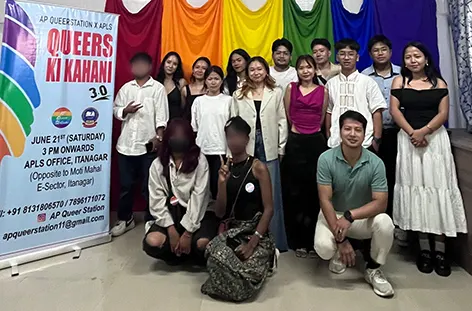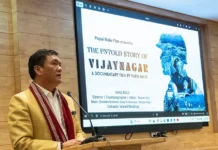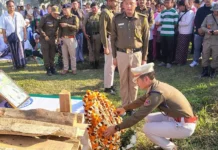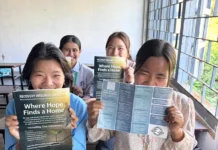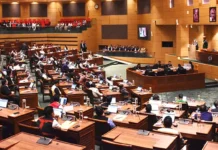ITANAGAR, 22 Jun: The AP QueerStation, in collaboration with the Arunachal Pradesh Literary Society (APLS), organized the third edition of ‘Queers ki Kahani’ here on Sunday.
The event brought together over 30 queer and trans individuals and members of the literary community to share personal stories, foster dialogue, and reflect on the lived realities of queer lives in Arunachal Pradesh, the AP QueerStation said in a release.
The storytelling session formed the heart of the event, where queer individuals courageously shared their journeys of coming out, acceptance, and rejection, it said.
While several speakers reflected on supportive families and communities, others spoke of ongoing struggles for recognition and belonging. These deeply moving narratives highlighted the complex social landscape of the state, where shifts toward acceptance coexist with lingering resistance and denial, the release said.
As part of the literary celebration, Wanggo Socia, poet and APLS member, led a thought-provoking session titled ‘Indian Writers’ Perspectives on Queer Identity and Representation in Literature’.
Socia traced the historical presence of queer identities across Indian civilizations, from ancient texts to Mughal influences, colonial distortions, and post-independence narratives. He asserted that same-sex love has always existed in the subcontinent, and it is homophobia, not homosexuality, that is foreign to Indian culture.
Socia emphasized that queerness is as natural as hunger or love, and called for greater understanding and inclusion in both literature and society.
The event also featured an interactive and mental wellness activity conducted by Dr Yuma Narah, assistant professor of psychology at the NERIST.
The game-based session, drawn from her therapeutic practice, encouraged connection, play, and conversations around mental health – a vital but often overlooked aspect of queer life.
The success of Queers ki Kahani 3.0 was made possible through the support of the APLS, led by its president YD Thongchi.
This edition of Queers ki Kahani was supported by Mariwala Health Initiative, as part of its commitment to intersectional and inclusive mental health advocacy.

